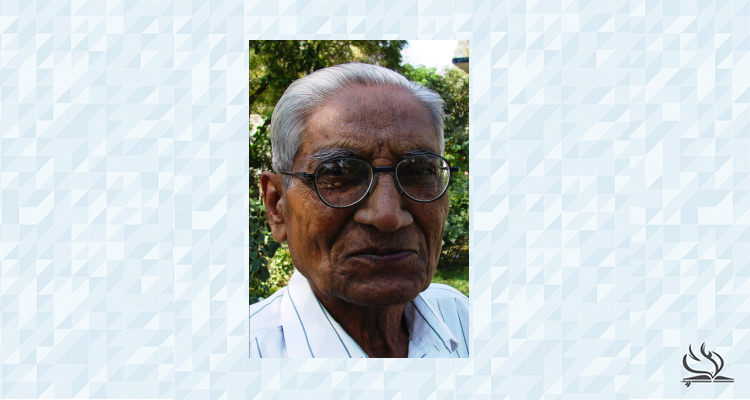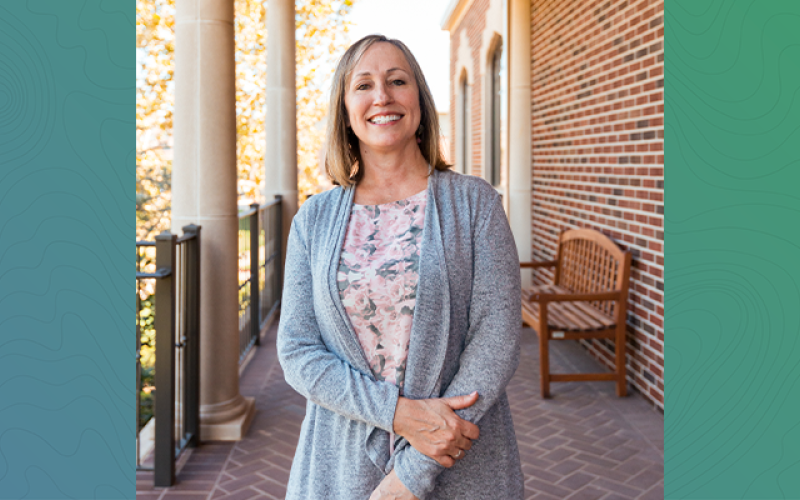
Life of longtime India leader remembered

The year 1919 was a momentous year in the history of the Church of the Nazarene in India. The first Nazarene church was organized, in Buldana, Maharashtra, and Suwartik Tukaram Gaikwad was born to a Methodist family.
S. T. Gaikwad would become one of the towering Indian leaders in the Church of the Nazarene during much of the 20th century.
After serving his church for 46 years, including 22 years as a district superintendent, Gaikwad passed away in Aurangabad in April at 96. Since his retirement, he and his wife, Anandi, who passed away two years ago, had been living with their son Vinay, superintendent of the Mid-Maharashtra District and pastor of Aurangabad Church of the Nazarene.
His mother, Yashoda, named him Suwartik, meaning “evangelist,” when he was three months old after he miraculously survived a near-fatal bout with pneumonia. With no medical care available and her husband away on a preaching mission, her fervent prayer brought divine intervention. The name she gave her son always reminded her (and him) that she had dedicated him to God’s service.
The family moved to Washim, which was a Methodist mission until it was turned over to the Nazarenes. While other mission families moved away, the Gaikwads elected to stay, thus becoming members of the Church of the Nazarene. During that time, another miracle occurred when a violent hail storm wiped out most of the crops in the area.
Yashoda went to prayer and the family’s tiny plot was spared. In 1935, at a camp meeting in Washim, an 18-year-old Suwartik came under conviction during the preaching of missionary May McKay and dedicated his life to Jesus. Soon he agreed that God had indeed called him into pastoral service. After attending Nazarene Bible School in Washim, he moved his wife, Anandi, and their two children to Bangarapet, where he enrolled in South India Biblical Seminary. He graduated with a bachelor of theology degree in four years.
Suwartik became a pastor and was ordained by General Superintendent H. C. Powers in 1954, who subsequently appointed him to his first term as district superintendent in 1959.
Over the following years, his service alternated between being a district superintendent and a pastor.
In 1974, General Superintendent Edward Lawler appointed him as pastor of the Aurangabad church, which was then in a crisis that could have closed the church. In 1983, General Superintendent William Greathouse appointed him as district superintendent, where he served until 1989. During his years of leadership, Gaikwad was often confronted with opposition and persecution from without and dissension from within. He served with distinction and humility.
“Towards the end of his life, he had a special burden for old churches and for revival of the holiness message and witness of the Nazarene churches,” said Sunil Dandge, field strategy coordinator for India.
Gaikwad had a good command of English and Marathi. He translated several books and articles into Marathi, including I and II Samuel in the Marathi Living Bible. He attended six Nazarene general assemblies and served on the General Board. He was esteemed as a holiness preacher, taking his message to revival meetings and camp meetings all over India.
He wasn’t just a preacher and church leader, however.
“He was a well-known hunter in early days, and had many adventure stories of close encounters with tigers and how he killed them," Dandge, said. "He was never tired of telling these stories with excitement. He encouraged many youths to go for full-time ministry and for theological studies. I am one among many he encouraged."
Three of Gaikwad's own children are in ministry.
During the funeral service, P. L. Manmothe said, “He was a great preacher and his emotions and experience in his sermons made a huge impact on listeners.”
S.T. is survived by six children, including Pastor Vinay, and Vidyasagar (“Vidu”), a holiness evangelist, and 12 grandchildren.



